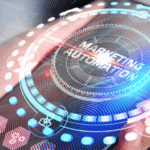Explore how digital marketing helps your business grow. Learn how to attract new customers, engage your audience, and build a strong online brand.
Marketing is all about reaching people at the right time, in the right place. Traditional methods still work, but since people spend so much time online, digital marketing has become essential.
The global digital marketing industry is expected to reach $786.2 billion by 2026 — proof of how vital it is for businesses today. If your business doesn’t have a digital marketing strategy, you’re missing growth opportunities. Today, successful businesses rely on digital tools to survive and thrive.
In this blog, we’ll explain why digital marketing matters, how it helps businesses grow, and which tools you can use. If you’re looking to boost your sales and brand visibility, you’re in the right place.
What is Digital Marketing?
Digital marketing means using online platforms to promote your product or service. This includes social media, content marketing, PPC ads, SEO, and more. For your business, it’s a way to reach both new and existing customers — and stay visible in the market.
It also gives you the freedom to be creative and stand out, especially in competitive industries. Today’s customers often discover brands online first, so being visible there is a must.
A good digital marketing strategy helps your company meet its bigger goals — using the right mix of digital tools.
What Are the Different Types of Digital Marketing?
Before we dive into why digital marketing is important, let’s look at its main types:
1. SEO (Search Engine Optimization)
SEO marketing helps your website appear at the top when people search on Google. It involves using the right keywords, publishing useful content, linking between pages, and making your site fast and easy to use.
When your SEO is strong, more people will discover your business through search engines.
2. Content Marketing
Content marketing gives value to your audience through blogs, videos, guides, or whitepapers. Its goal is to increase traffic, build trust, and generate leads.
Creating valuable and meaningful content helps you grab attention — and makes people more likely to come back to your brand again and again.
3. Social Media Marketing
Social media marketing is now one of the top digital marketing tools. Social media lets you showcase your brand’s message and connect with a larger audience in a simple, effective way. Whether it’s Facebook, Instagram, LinkedIn, TikTok, or YouTube — you can engage your audience and build relationships.
You can also boost posts or run ads to target specific people — based on their interests, location, or behavior.
4. PPC (Pay-Per-Click)
PPC is a paid strategy where you’re charged only when someone clicks on your advertisement — making every rupee count. Examples include Google Ads, Facebook Ads, Twitter Ads, or sponsored content on LinkedIn.
While it’s not organic, PPC is still powerful for getting fast traffic and leads.
5. Email Marketing
Even today, email marketing is a strong digital marketing tool. It lets you connect directly with your audience — sharing updates, offers, events, or news.
It also works well across all age groups and helps drive traffic to your site.
6. Influencer Marketing
This type of marketing uses popular online personalities to promote your brand. You work with influencers who already have your target audience’s trust.
They create content for their followers that features your product or service — helping increase exposure and sales.
Why Digital Marketing Is Important for Business
Now let’s break down why digital marketing matters so much.
1. Grows Brand Awareness
Digital marketing gives smaller businesses a fair chance to compete with big names. When you market your business online, you open the door to a larger audience and build stronger visibility for your brand.
As more people see your content, they become aware of what you offer — building recognition and trust.
2. Reaches Online Customers
As of January 2023, over 5.16 billion people use the internet. Many of them are your potential customers.
If you’re not online, your audience might never find you. Most people now search for businesses through Google or social media before buying. If they can’t find you, they’ll go to your competitor instead.
3. Cost-Effective
Digital marketing is budget-friendly. It’s cheaper than TV, print, or billboards — and gives better control over how you spend money.
You can invest in what suits your goals, like SEO, Google Ads, or a simple video shoot. It also lets you adjust your plan anytime — reducing wasted money.
4. Measurable Results
This is one of the biggest advantages of digital marketing. You can track everything — clicks, views, time spent, bounce rate, conversions.
Real-time data helps you see what’s working and what’s not — so you can improve your campaigns quickly. You learn from both success and failure — and use that insight to grow your business.
5. Faster and More Efficient
Digital marketing lets you start promoting your business instantly. Even with a limited budget, you can begin by posting more on social media or applying basic SEO to your website.
It saves time compared to traditional marketing and brings faster results.
6. Better ROI (Return on Investment)
Since you can monitor every campaign, it’s easier to get high ROI. Email and SEO are especially strong — with ROI of 3,600% and 2,200% respectively. Businesses that track their results regularly are more likely to get increased marketing budgets — because they show what’s working.
More visibility = more leads = more conversions.
7. Targets Mobile Users
There are nearly 7 billion smartphones in use, and over 4.7 billion people use social media. Digital marketing helps you reach this mobile audience where they already spend time.
Your website must be mobile-friendly, fast, and easy to use — or you’ll lose visitors quickly.
8. Stay Ahead of Competitors
Your competitors are already using digital marketing. If you’re not, you’re falling behind.
Watch what they’re doing — and do it better. Better ads, smarter content, stronger SEO — everything helps bring more customers your way.
Conclusion
Online marketing isn’t optional anymore — it’s a must. It helps your business grow, attract new customers, and stay relevant in a fast-changing world. From SEO and social media to PPC and content — every tool can make a difference.
So, if you haven’t started yet — this is the right time to go digital.








